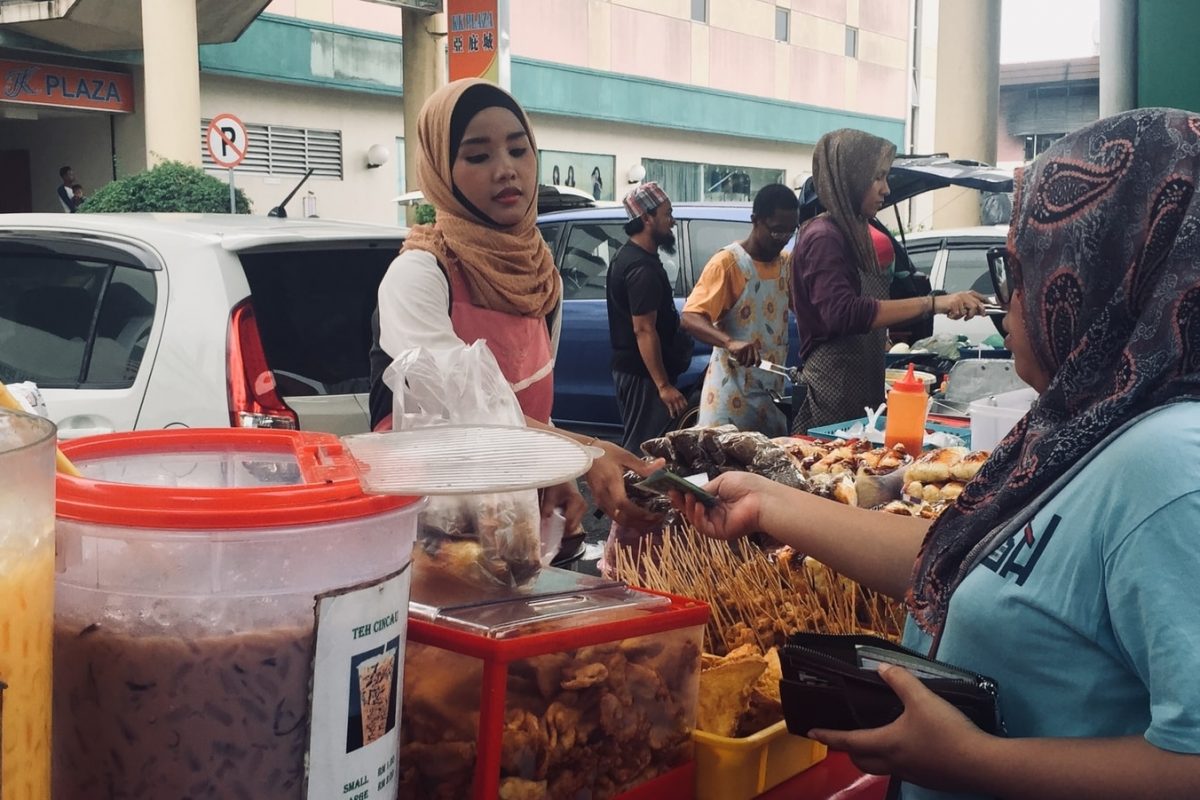APEC Malaysia, Bank Negara Malaysia (BNM), the Malaysia Digital Economy Corporation (MDEC) and the United Nations Capital Development Fund (UNCDF) launched the Financial Innovation Gig Economy Challenge. The challenge is funded by MetLife Foundation through the i3 (Innovate, Implement and Impact) Program.
The challenge calls for the submission of innovative solutions to improve the financial health of gig economy workers, in support of the theme and priority areas of APEC Malaysia 2020, particularly under the Finance Ministers’ Process. These include 1) optimising human potential towards a future of shared prosperity; 2) the longstanding focus on financial inclusion; and 3) democratising the digital economy.

In contrast to the traditional economy set-up, the gig economy is characterised by flexible, temporary, or freelance jobs with irregular income and working hours. Fueled by the digital revolution in recent years, the growth of the gig economy is set to continue. By 2023, the global gig economy in gross volume terms is expected to increase from USD200 billion to USD455 billion. This shift in the employment landscape introduces new sources of financial risks that, if left unaddressed, may leave gig economy workers vulnerable to financial shocks.
Malaysia as host of APEC 2020, calls for the pursuit of balanced and sustainable economic growth, along with fair and equitable wealth distribution across all segments of the population, including those engaged in the gig economy. The challenge is therefore aimed at seeking out innovative solutions that help secure the economic and financial well-being of gig economy workers through the four pillars of financial health – spending, saving, borrowing and financial planning.
Solution providers across all APEC economies are invited to submit their application from today until 11 May 2020 at www.uncdf.org/finlab. Shortlisted applicants will be invited to participate in a four-week “accelerator” programme to further develop and refine their solutions with assistance from specialists. At the end of the programme, the panel judges will select three applications to receive grants and an opportunity to pilot their products in Malaysia. The selected applicants will have the chance to showcase their solutions at the APEC Finance Ministers’ Meeting in October 2020. Further information about the challenge can be found in the official website for the challenge at www.uncdf.org/finlab.
About APEC Malaysia 2020
The Asia-Pacific Economic Cooperation (APEC), is a regional economic forum of 21 members, established in 1989. Its formation leverages on the growing interdependence of the Asia-Pacific, with the primary goal of promoting free trade and sustainable development in the Pacific Rim economies.
Malaysia is one of the founding members of APEC in 1989, alongside 11 other economies, namely Australia, Brunei Darussalam, Canada, Indonesia, Japan, the Republic of Korea, New Zealand, the Philippines, Singapore, Thailand and the United States. China; Hong Kong, China; and Chinese Taipei joined in 1991. Mexico and Papua New Guinea followed in 1993. Chile acceded in 1994. And in 1998, Peru; Russia; and Viet Nam joined, taking the full membership to 21.
Malaysia hosted APEC in 1998, with the theme “Strengthening the Foundations for Growth.”
Hosting APEC in 2020 is an historic and significant event for Malaysia because of “Wawasan 2020” which sets a target for the nation to be a self-sufficient industrialised nation by the year 2020. The Wawasan 2020 principles of economic prosperity moving in tandem with social well-being is well-timed and relevant to the current global economic situation.
The year 2020 is similarly significant to APEC as the Bogor Goals, which was launched in 1994, will reach its maturity. The Bogor Goals is an aspirational target with the aim of achieving free and open trade and investment in the Asia-Pacific by 2020.
About BNM
Bank Negara Malaysia (BNM) was established in 1959, under the Central Bank of Malaysia Act 1958 (Revised in 2009). BNM is principally entrusted to uphold monetary and financial stability and maintain oversight over the payments system in the country. BNM has overseen the development of a comprehensive, efficient and resilient financial sector, contributing to economic growth and development.
As part of its mandate, BNM is committed to evolving well-designed regulations for innovation in financial services, while ensuring that the associated risks are well-managed. This includes a focus on uplifting financial inclusion among consumers, including the gig economy. Further information on Bank Negara Malaysia and its developmental efforts may be found at https://www.bnm.gov.my/index.php.
About MDEC
MDEC is a government agency under the purview of the Ministry of Communications and Multimedia Malaysia entrusted to lead Malaysia’s digital economy forward. Incorporated in 1996 to oversee the development of the MSC Malaysia initiative, MDEC’s primary mandate today is to accelerate the growth of digitally-skilled Malaysians, digitally-powered businesses and digital investments in Malaysia. MDEC is focused on creating inclusive, high-quality growth through the nationwide digitalisation initiatives that are in line with the Government’s Shared Prosperity Vision 2030 and firmly establishing Malaysia as the Heart of Digital ASEAN.
MDEC is proud to be part of this effort and aims to build a vibrant digital economy by emphasising the need to have well-protected gig workers via digital financial inclusion. The gig economy sector is expected to reshape careers of the next generation and it will be one of the new source of digital economic growth for the country. Considering this new opportunity, MDEC will continue to empower the digitally-skilled Malaysians by working closely with its partners, businesses and regulators.
About MetLife Foundation
MetLife Foundation believes that everyone should have access to the right financial tools and services to build a better tomorrow. The Foundation is dedicated to advancing financial inclusion, to help low-income individuals and families get access to safe and affordable financial products and services. Since it was established in 1976, MetLife Foundation has provided more than USD744 million in grants and USD70 million in program-related investments to organisations addressing issues that have a positive impact in their communities. For more information visit www.metlife.org.
About UNCDF:
The UN Capital Development Fund (UNCDF) makes public and private finance work for the poor in the world’s 47 least developed countries. With its capital mandate and instruments, UNCDF offers “last mile” finance models that unlock public and private resources, especially at the domestic level, to reduce poverty and support local economic development. UNCDF’s financing models work through two channels: financial inclusion that expands the opportunities for individuals, households, and small businesses to participate in the local economy, providing them with the tools they need to climb out of poverty and manage their financial lives; and by showing how localised investments—through fiscal decentralisation, innovative municipal finance, and structured project finance—can drive public and private funding that underpins local economic expansion and sustainable development. By strengthening how finance works for poor people at the household, small enterprise, and local infrastructure levels, UNCDF contributes to SDG 1 on eradicating poverty and SDG 17 on the means of implementation. By identifying those market segments where innovative financing models can have transformational impact in helping to reach the last mile and address exclusion and inequalities of access, UNCDF contributes to a number of different SDGs. For more information visit https://www.uncdf.org/.
Frequently Asked Questions (FAQs)
- Who can apply to the Gig Economy Challenge?
Any companies registered in one of the 21 APEC Economies (Australia; Brunei Darussalam; Canada; Chile; People’s Republic of China; Hong Kong, China; Indonesia; Japan; Malaysia; Mexico; New Zealand; Papua New Guinea; Peru; The Philippines; Russia; Singapore; Republic of Korea; Chinese Taipei; Thailand; Viet Nam; and the United States) AND have a minimum viable product (MVP), or a product in the market, that improves financial health outcomes for gig economy workers.
Minimum Viable Product (MVP) is a product with just enough features to satisfy early customers and to provide feedback for future product development. This means there should be something tangible to be presented (whether physical or virtual) and not merely just an idea on paper.
- What kind of solutions are you looking for?
Solutions that will be piloted in Malaysia. Solution design should be able to account for the set of the unique constraints and challenges that gig workers face. The solution must clearly improve the financial health of the gig workers by enabling them to improve spending, saving, borrowing, or planning. Back-end solutions, either technical or novel in their business models, with clear financial health outcomes are accepted.
- How can I apply to the Gig Economy Challenge?
The application form can be found at www.uncdf.org/finlab. You may submit multiple applications if they are different products or services. However, we will choose one (1) application per company.
- When is the application due?
11 May 2020 (8:00 am, MYT)
- How can I learn more about the gig economy to know if my solution is a good fit?
You may find problem statements that describe the state of the gig economy in Malaysia and impact to financial health of gig workers at www.uncdf.org/finlab.
- Does the solution need to be a financial solution? Do I need to be a Fintech company to apply?
No, the solution can be non-financial in nature but have financial applications, such as an application that strives to trigger a behavior change. The solution needs to demonstrate the value for end-user and contribute to improving their financial well-being.
- How will solutions be evaluated for selection?
The first round of application selection will be assessed by the following criteria:
- Impact: Considerations include productivity, profitability, use experience, risk management, knowledge-transfer, and applicability beyond the financial sector.
- Practicality: Examples include case of implementation, scalability, and cost-effectiveness.
- Interoperability: Ability for the solution to interface with other systems.
- Uniqueness & Creativity: Extent to which the solution differs from the status quo. One possible dimension could be through the approaches / technologies used to address specific problems.
- What is the purpose of bootcamps in Malaysia?
The bootcamps are an important part of the inclusive innovation journey developed by UNCDF. The programming has been developed to enable solution providers to create and refine commercially viable solutions that serve end users. The bootcamps include design thinking process and field visits.
- If I am selected and coming from an APEC economy outside of Malaysia, what are the visa requirements to travel to Malaysia?
Visa requirements vary by citizenship and all travelers are responsible for acquiring their own visas. UNCDF will provide invitation letters to support the process.
- If the current COVID-19 situation persists until the scheduled four-week bootcamps in Kuala Lumpur (tentatively sometime between June-September 2020), how would this affect the selected participants?
The authorities are closely monitoring the developments of COVID-19. We will provide updates on the bootcamps closer to the date.
- Are there restrictions on using the grant money?
The grant of up to USD30,000 will be governed by a performance-based agreement signed between all parties. The money can only be used towards the intended pilot/project-related activities as mutually agreed.
- Source of the data (the size of the gig economy in gross volume exceeds USD200 billion and is expected to more than double to USD455 billion by 2023).
Malaysia’s APEC 2020 Background Paper – Priority Area 2: Inclusive Economic Participation Through Digital Economy and Technology (pg. 1), as cited from Mastercard and Kaiser Associates (2019), Mastercard Gig Economy Industry Outlook and Needs Assessment: The Global Gig Economy: Capitalizing on a $500B Opportunity, May 2019.


